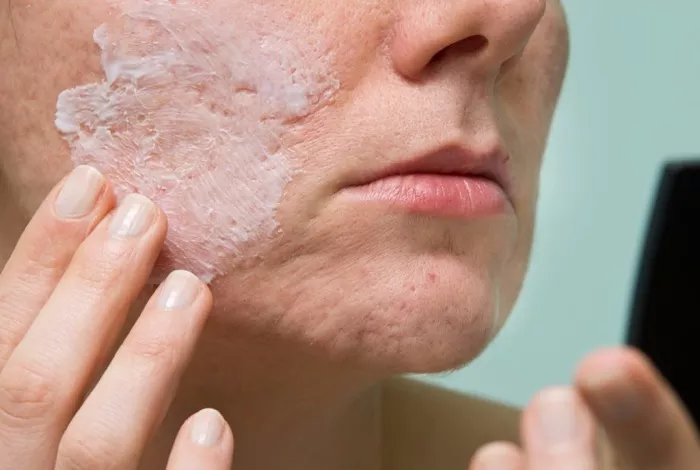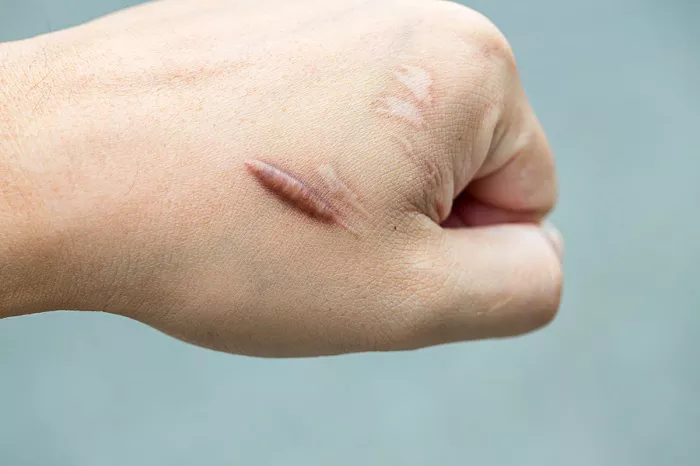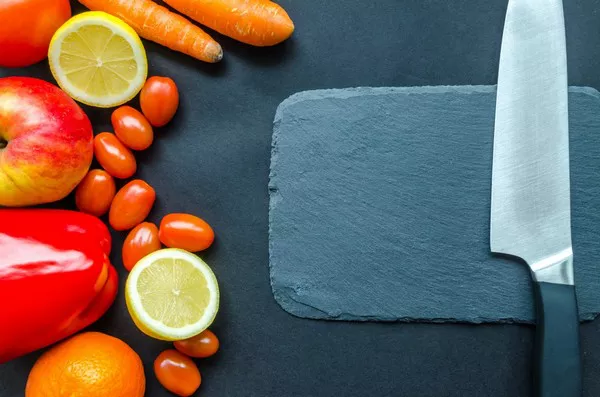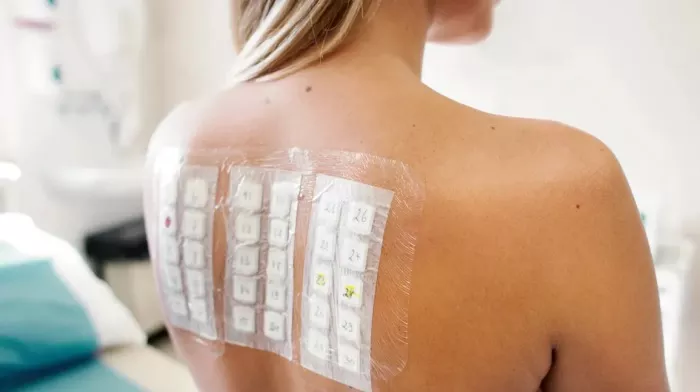Scars are a natural part of the body’s healing process, but many individuals want to minimize their appearance. Whether it’s from a surgery, injury, or acne, scars can leave lasting marks on the skin, affecting one’s confidence and self-esteem. While some scars fade over time, others may remain prominent or even worsen if not properly cared for. One of the most effective and natural ways to promote scar healing is through the use of vitamins. Vitamins play an essential role in supporting the body’s healing process, reducing inflammation, promoting collagen production, and improving skin health. This article explores the most beneficial vitamins for repairing scars, how they work, and how you can incorporate them into your routine for optimal results.
The Role of Vitamins in Skin Healing
Skin healing, especially after a wound or injury, is a complex process. When the skin is damaged, the body goes into repair mode by producing new tissue to close the wound. This new tissue is rich in collagen, which helps in the formation of the scar. However, the quality of the collagen produced, as well as the skin’s ability to heal properly, depends on several factors. Nutrition plays a crucial role in skin healing, and vitamins are vital components of the healing process.
Certain vitamins support wound healing by reducing inflammation, promoting collagen synthesis, and aiding the regeneration of skin cells. These vitamins not only help in repairing scars but also prevent them from becoming hypertrophic, keloid, or atrophic scars. Understanding how each vitamin supports scar repair can help you choose the right ones to incorporate into your diet and skincare routine.
Vitamin A: The Skin Regenerator
Vitamin A is a powerful nutrient known for its role in skin health. It is essential for skin regeneration and repair, making it one of the most important vitamins for scar healing. Vitamin A promotes the production of new skin cells, which can help to replace damaged tissue and speed up the healing process. It also has anti-inflammatory properties, reducing swelling and redness around the scar.
Retinoids, a form of vitamin A, are commonly used in topical skincare products to treat acne scars, age spots, and other skin issues. These compounds stimulate collagen production, which is essential for strengthening the skin and reducing the appearance of scars. Vitamin A’s ability to promote skin cell turnover helps prevent scars from becoming permanent.
To boost your vitamin A intake, you can consume foods rich in this nutrient, such as sweet potatoes, carrots, spinach, kale, and liver. For topical application, you can use over-the-counter retinoid creams, but it’s essential to consult a dermatologist before using such products, as they can cause irritation if not used correctly.
Vitamin C: The Collagen Builder
Vitamin C is another crucial nutrient for skin healing and scar repair. It is essential for collagen synthesis, which plays a vital role in wound healing. Collagen is the main protein that gives the skin its structure and strength, and it is necessary for repairing damaged skin. Without sufficient vitamin C, the body struggles to produce adequate collagen, which can result in weaker, less effective healing and more noticeable scars.
In addition to its role in collagen production, vitamin C also has antioxidant properties that help protect the skin from oxidative stress caused by free radicals. Free radicals can damage healthy skin cells and slow down the healing process, leading to persistent scarring. By neutralizing these free radicals, vitamin C supports the skin’s natural healing mechanisms.
To promote scar healing with vitamin C, you can consume foods such as citrus fruits, strawberries, bell peppers, broccoli, and tomatoes. Additionally, many skincare products contain vitamin C serums or creams, which can be applied directly to the scar to boost collagen production and fade hyperpigmentation.
Vitamin E: The Scar Soother
Vitamin E is one of the most well-known vitamins for scar healing. It is widely used in topical treatments for scars, stretch marks, and other skin issues due to its ability to promote skin repair. Vitamin E acts as an antioxidant, protecting skin cells from oxidative damage. It also has moisturizing properties, keeping the skin hydrated and preventing it from becoming dry and brittle, which can make scars more noticeable.
In addition to its moisturizing effects, vitamin E helps to improve the elasticity of the skin. This can be particularly helpful for scars that are raised or hypertrophic. By improving skin elasticity, vitamin E can help the scar blend more seamlessly with the surrounding skin, making it less visible.
While vitamin E is beneficial for scar healing, there is some debate about its effectiveness when applied topically. Some studies suggest that vitamin E may reduce scar formation, while others report little to no improvement. Despite this, many people still find vitamin E to be helpful for scar healing, particularly in preventing excessive dryness and improving the overall appearance of scars.
You can increase your vitamin E intake by consuming foods such as almonds, sunflower seeds, spinach, and avocados. Topical vitamin E oils and creams are also widely available and can be applied directly to the scar to help improve its appearance over time.
Vitamin K: The Healer of Bruises and Scars
Vitamin K is often overlooked when it comes to scar healing, but it plays a crucial role in tissue repair and wound healing. It is essential for blood clotting, which helps control bleeding after an injury or surgery. Vitamin K also aids in reducing bruising, which is common after surgery or trauma, and promotes the healing of the skin.
In addition to its role in blood clotting, vitamin K can help reduce the visibility of scars by preventing excessive scarring and promoting the proper healing of the skin. It can also help with hyperpigmentation, which often occurs when the skin is healing from a wound or injury.
To support scar healing with vitamin K, you can eat foods such as leafy greens (like kale, spinach, and Swiss chard), broccoli, Brussels sprouts, and green beans. Vitamin K creams and oils are also available and can be applied topically to the scar to reduce bruising and promote healing.
Vitamin D: The Immune Booster
Vitamin D plays an important role in immune function, which is essential for proper wound healing. When you experience an injury or undergo surgery, your immune system is activated to fight infection and promote healing. Vitamin D helps modulate the immune response, ensuring that the body heals efficiently and prevents complications such as infection that could worsen the appearance of scars.
In addition to supporting the immune system, vitamin D helps regulate the growth of skin cells and collagen production, both of which are essential for scar healing. Adequate levels of vitamin D can promote faster healing and reduce the risk of developing abnormal scars, such as keloids.
You can boost your vitamin D levels by spending time in the sun, consuming foods such as fatty fish (like salmon, mackerel, and tuna), fortified dairy products, and egg yolks. In some cases, vitamin D supplements may be necessary, especially if you have a deficiency.
The Importance of a Balanced Diet for Scar Healing
While specific vitamins are essential for scar repair, a balanced diet that includes a variety of nutrients will support the overall healing process. Protein is particularly important, as it helps in collagen formation and tissue repair. Zinc is another vital mineral that supports immune function and cell regeneration. Additionally, staying hydrated is key to maintaining skin elasticity and preventing the formation of dry, hardened scars.
To optimize scar healing, ensure that you’re consuming a well-rounded diet that includes plenty of fresh fruits and vegetables, whole grains, lean proteins, and healthy fats. A diet rich in antioxidants, vitamins, and minerals will not only help heal scars but also improve the overall health of your skin.
Conclusion
Vitamins are an essential part of the body’s natural healing process, especially when it comes to repairing scars. Vitamin A, vitamin C, vitamin E, vitamin K, and vitamin D all play vital roles in promoting skin regeneration, collagen production, and reducing inflammation. By incorporating these vitamins into your diet and skincare routine, you can accelerate the healing of scars and improve the appearance of your skin.
While natural remedies and vitamins can help repair scars, it’s also important to practice good wound care and avoid factors that may worsen scarring, such as sun exposure and infection. Patience is key when it comes to scar healing, as it can take time for scars to fade and blend into the surrounding skin. By supporting your body with the right nutrients and following proper skincare practices, you can achieve the best possible outcome for your scars.
Scars are a natural part of the body’s healing process, but many individuals want to minimize their appearance. Whether it’s from a surgery, injury, or acne, scars can leave lasting marks on the skin, affecting one’s confidence and self-esteem. While some scars fade over time, others may remain prominent or even worsen if not properly cared for. One of the most effective and natural ways to promote scar healing is through the use of vitamins. Vitamins play an essential role in supporting the body’s healing process, reducing inflammation, promoting collagen production, and improving skin health. This article explores the most beneficial vitamins for repairing scars, how they work, and how you can incorporate them into your routine for optimal results.
Related Topics





























